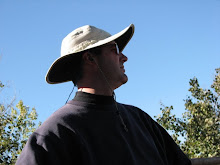When searching for a name for my new blog, I had a number of really catchy ones that I liked, however, Deanna crossed off a couple from my list. There were a couple of others that I liked, but they really made no sense for my blog title. So, I decided on this one, which I am liking quite a bit now....which brings us to the question of, what's a grognard anyway...
Grognard is French for "grumbler".
It is not necessarily pejorative and is sometimes used as a compliment. Historically it meant a soldier in Napoleon's army, particularly a member of the Old Guard. It subsequently became an internet pop culture meme. According to Alan Emrich, "grognard" came to mean a veteran wargamer in the early 1970s. It was first used by John Young, at that time an employee of SPI, and subsequently popularised by Strategy & Tactics magazine. From wargaming, the term moved to role-playing games where it was used to mean someone who preferred older-than-current editions of a game (for example, a person who stayed with first edition Dungeons & Dragons even after the second or third editions were released). Nowadays, in colloquial usage, particularly on the internet, it refers to someone who has been involved in a hobby or pastime for a long period, particularly those involved in earlier phases of a now-popular hobby. It is still most often used with reference to wargames or role-playing games.
The Old Guard was the name of the veterans of the French Army's Imperial Guard under Napoleon Bonaparte.
The Old Guard served Napoleon since his earliest campaigns. All soldiers within the 1st Grenadiers, 1st Chasseurs, and the Sergeants of the 2nd Grenadiers, Chasseurs, and Fusiliers were in the Old Guard Infantry, while the Mounted Gendarmes, Grenadiers a Cheval, Guard Empress Dragoons, Mamelukes, Chasseurs a Cheval, and 1st (Polish) Lancer Regiments bore that honour for the Cavalry.
It is believed that Napoleon hand-selected members of his Old Guard based on physical traits, most notably above-average height. Their imposing stature was likely impressive to foes and allies alike.
The Old Guard Grenadiers were known to complain in the presence of the Emperor, giving them the nickname, Les Grognards. After being disbanded by the victorious Sixth Coalition in 1814, the Old Guard along with the rest of the Imperial Guard was reformed after Napoleon's return from exile on Elba, and later fought at the Battle of Waterloo. The Old Guard Infantry were pivotal in the defense of the town of Plancenoit against the Prussians, and served as a kind of rear guard after the failure of the attack of the Middle Guard on the British Center. The Old Guard Cavalry had the misfortune to be involved in the wasteful midday charges against the British infantry, and were unavailable at the decisive moments of the battle. Napoleon had used up every last reserve except the Old Guard. Faced with overwhelming firepower and numbers, they fell, and were forced to retreat.
---------------------
So with all that said, I like the historical roots of the word, and I suspect that there will be plenty of grumblin' going on to make the Old Guard proud!
Grognard is French for "grumbler".
It is not necessarily pejorative and is sometimes used as a compliment. Historically it meant a soldier in Napoleon's army, particularly a member of the Old Guard. It subsequently became an internet pop culture meme. According to Alan Emrich, "grognard" came to mean a veteran wargamer in the early 1970s. It was first used by John Young, at that time an employee of SPI, and subsequently popularised by Strategy & Tactics magazine. From wargaming, the term moved to role-playing games where it was used to mean someone who preferred older-than-current editions of a game (for example, a person who stayed with first edition Dungeons & Dragons even after the second or third editions were released). Nowadays, in colloquial usage, particularly on the internet, it refers to someone who has been involved in a hobby or pastime for a long period, particularly those involved in earlier phases of a now-popular hobby. It is still most often used with reference to wargames or role-playing games.
The Old Guard was the name of the veterans of the French Army's Imperial Guard under Napoleon Bonaparte.
The Old Guard served Napoleon since his earliest campaigns. All soldiers within the 1st Grenadiers, 1st Chasseurs, and the Sergeants of the 2nd Grenadiers, Chasseurs, and Fusiliers were in the Old Guard Infantry, while the Mounted Gendarmes, Grenadiers a Cheval, Guard Empress Dragoons, Mamelukes, Chasseurs a Cheval, and 1st (Polish) Lancer Regiments bore that honour for the Cavalry.
It is believed that Napoleon hand-selected members of his Old Guard based on physical traits, most notably above-average height. Their imposing stature was likely impressive to foes and allies alike.
The Old Guard Grenadiers were known to complain in the presence of the Emperor, giving them the nickname, Les Grognards. After being disbanded by the victorious Sixth Coalition in 1814, the Old Guard along with the rest of the Imperial Guard was reformed after Napoleon's return from exile on Elba, and later fought at the Battle of Waterloo. The Old Guard Infantry were pivotal in the defense of the town of Plancenoit against the Prussians, and served as a kind of rear guard after the failure of the attack of the Middle Guard on the British Center. The Old Guard Cavalry had the misfortune to be involved in the wasteful midday charges against the British infantry, and were unavailable at the decisive moments of the battle. Napoleon had used up every last reserve except the Old Guard. Faced with overwhelming firepower and numbers, they fell, and were forced to retreat.
---------------------
So with all that said, I like the historical roots of the word, and I suspect that there will be plenty of grumblin' going on to make the Old Guard proud!



No comments:
Post a Comment